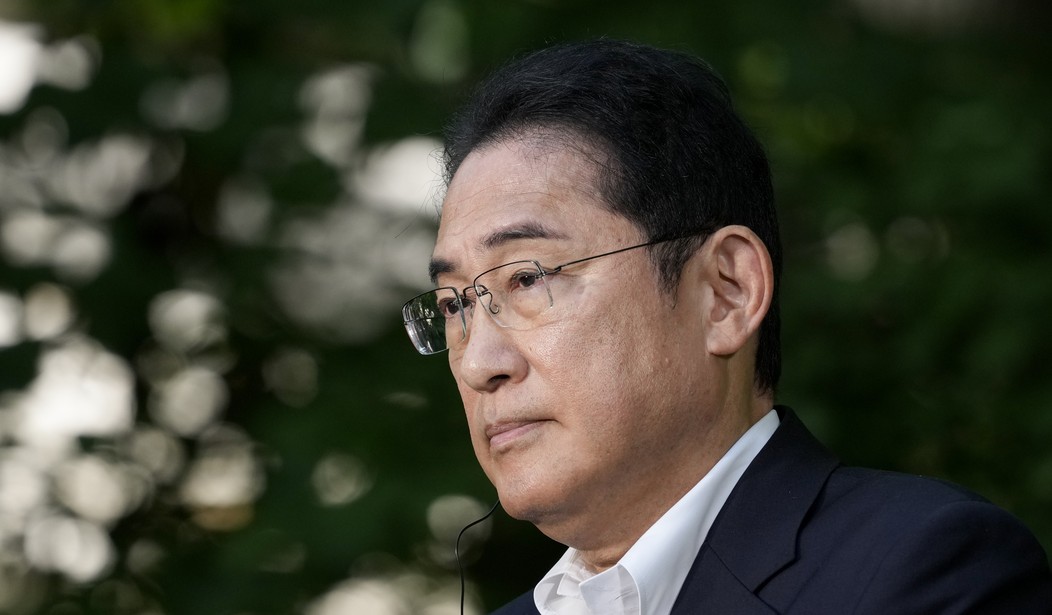I've described many times before how fond my wife and I are of Japan. We've spent a fair amount of time in the Land of the Rising Sun; I've lived and worked there, and we're fond of the country, the people, and the culture. While Japan has its issues, demographics not least among them, it's still a great place to visit.
If we were ever to maintain a second home in another nation, there's no question that Japan would be our choice.
For these reasons and others, it was interesting to see Japan's Prime Minister, Fumio Kishida, discussing the current geopolitical situation and how Japan would continue dialing its military forces in.
Spiraling geopolitical tensions have pushed the world to a “historic turning point” and are forcing Japan to change its defense posture, Japanese Prime Minister Fumio Kishida told CNN Sunday ahead of a closely watched summit with US President Joe Biden next week.
“As we are witnessing Russia’s Ukraine aggression, the continuing situation over the Middle East, as well as the situation in East Asia, we are faced with a historic turning point,” Kishida said during an interview at his private residence in Tokyo
“That is why Japan has made a decision to fundamentally reinforce its defense capabilities and we have greatly changed Japan’s security policy on these fronts,” he said.
The timing of this announcement is interesting, coming as it does days before a meeting with President Biden and an address of a joint session of the U.S. Congress. Could this be a veiled warning to the Biden administration that they are concerned that America doesn't have Japan's back any longer? Having worked in Japan and had lots of dealings with Japanese people, I can attest that the Japanese are very good at making veiled statements, and this sure looks like one.
That message would appear to be aimed at the White House, and my guess is that it translates to "We're not sure you have our backs anymore."
In the interview, PM Kishida gave some broad statements on where the Japan Self-Defense Forces (JSDF) are going.
Since coming to office in 2021, the prime minister has overseen a sweeping shift in Tokyo’s defense posture, veering away from the pacifist constitution imposed on it by the United States in the aftermath of World War II, to boost defense spending to about 2% of its GDP by 2027 and acquire counterstrike capabilities.
In explaining the reasons for the boost, PM Kishida made some other interesting statements, focusing on tensions in the Pacific.
When asked about that shift, Kishida pointed to the “severe and complex” security environment surrounding his East Asian nation, the world’s fourth-largest economy.
“In our neighborhood, there are countries that are developing ballistic missiles and nuclear weapons, and others that are building up their defense capabilities in an opaque way. Also, there is a unilateral attempt to change the status quo, by force, in both the East China Sea and South China Sea,” he said, in an apparent reference to Chinese maritime aggression related to territorial disputes with both the Philippines and Japan.
By "countries that are developing ballistic missiles and nuclear weapons," we can presume he means North Korea and China, both of which are of serious concern to Japan. It's also important to note that while PM Kishida is in the U.S., there will also be a trilateral meeting between President Biden, PM Kishida, and representatives from the Philippines, who are having low-level conflicts with China over fishing grounds at the moment. Japan would do well to keep an eye on Russia, as well; the two countries have clashed in the past, and Japan literally stares at Russian territory across the Sea of Japan - and Russia still holds the Sakhalin islands, much of which was Japanese territory before the Soviet Union seized it in 1945.
Japan is a nation with a great history, and could yet be a nation with a great future if they can overcome their demographic crisis. Modern Japan, while remaining a technological power, is not like the Japan of 1941 - or 1904. Today's Japan can be, militarily, more on the American model, with a Japanese twist: A high-tech force aimed at defense, not conquest, using technology and precision as force multipliers to overcome their population issues. The nation holds a key place in the western Pacific, in addition to being America's best ally in the region. It's not too late for Japan to remember that they once had a great military tradition and to regain the best of that while forgoing the older expansionist ambitions.
The next decade or two will be key to Japan's future. PM Kishida seems to understand that.

